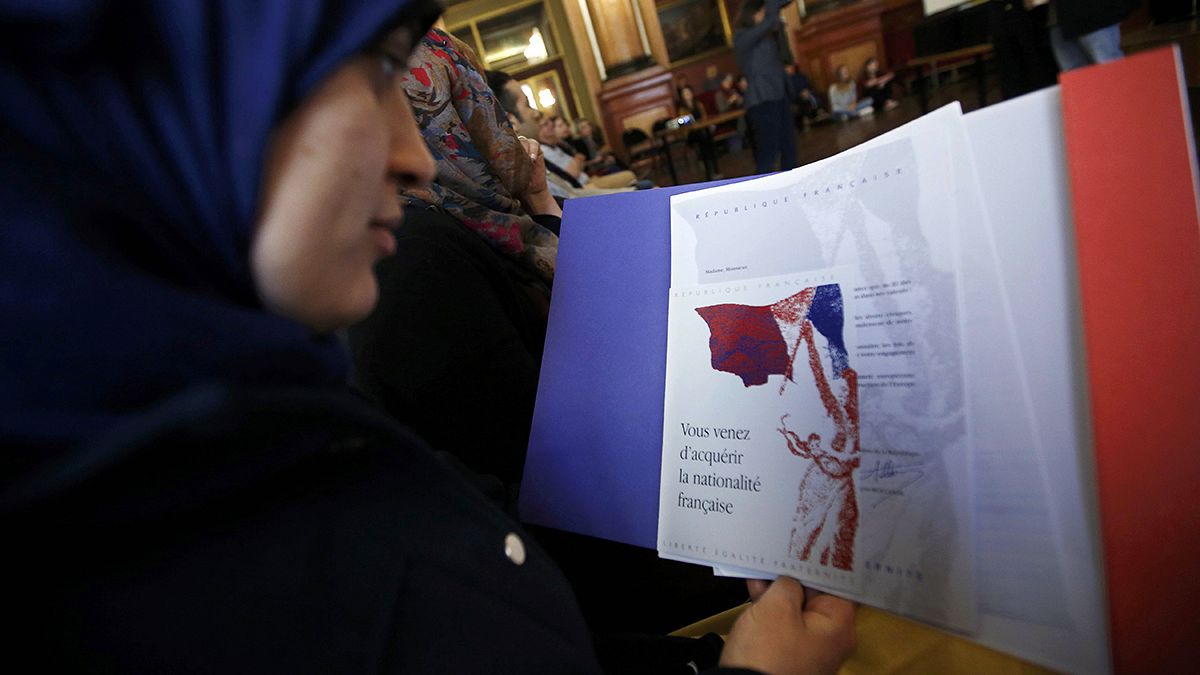The lower house narrowly approves plan to strip convicted terrorists of their dual nationality
- Government proposal narrowly approved
- Critics condemn a “symbolic” gesture
- Follow-on vote on Wednesday
The news
Francois Hollande’s controversial plan to strip French citizenship from people convicted of terrorism has cleared its first hurdle in parliament.
L'inscription de la déchéance de nationalité adoptée par l'Assemblée nationale https://t.co/amXvPlF9zRpic.twitter.com/aSWnLBX86p
— BFMTV (@BFMTV) February 9, 2016
The lower house of parliament backed controversial proposals introduced after 130 people died in the attacks in Paris last November.
France’s National Assembly voted by 162-148 to write a clause into the country’s constitution that would strip the passports from anyone found guilty of such an offence.
Déchéance de nationalité: pour Manuel Valls, le débat est clos https://t.co/vz9iRHisqdpic.twitter.com/Jff4fshjLA
— L'Express (@LEXPRESS) February 9, 2016
French Prime Minister Manuel Valls welcomed the result of the vote.
“We will hold another vote tomorrow. I think approval will be broader and the constitutional reform will go ahead.”
French Justice Min Christine Taubira quits to protest new anti-terror law. #BlackGirlMagicpic.twitter.com/IF8c1YMXIE
— Karen Williams (@redrustin) January 29, 2016
The recent resignation of Justice Minister Christine Taubira over the plans and disagreement among other members of the governing Socialist Party raised doubts about the constitutional changes being adopted.
What happens now?
Etat d'urgence: Après l'Assemblée nationale, le Sénat vote la prolongation https://t.co/cBUWC82Nphpic.twitter.com/dXqFMLHHM1
— 20 Minutes (@20Minutes) February 9, 2016
A follow-up vote is scheduled for Wednesday. The lower house will reaffirm the vote.
In order the change the constitution, the government’s plan will need to be approved by the upper house or Senate.
It will then require final approval by a three-fifths majority of both houses.
Experts say this is likely to take weeks.
Why is there opposition?
Grosse affluence sur les bancs de la gauche à l'Assemblée nationale pour la révision constitutionnelle pic.twitter.com/nE5soZEflN
— benoithamon (@benoithamon) February 9, 2016
Déchéance de nationalité: les réserves de Macron, le recadrage de Valls https://t.co/7nGlzsTs7Dpic.twitter.com/Fgeh7w9jYM
— BFMTV (@BFMTV) February 10, 2016
The result of the vote, while tight, has not completely defused concerns of a rebellion within the Socialist Party itself.
Many politicians, including prominent members of the left-wing, think it is ineffective.
They say it is a purely symbolic gesture as France attempts to tackle the threat of terrorism.
Critics also say the planned law could potentially stigmatise French citizens with dual nationality, such as those from former French colonies in Africa.
Under international law, governments cannot make citizens stateless.
In pictures and in tweets
“Ni déchéance, ni état d'urgence” sur la façade de l'Assemblée nationale https://t.co/79y9Kxtsgnpic.twitter.com/pYRknriSPh
— MYTF1News (@MYTF1News) February 10, 2016
What they are saying
“With 130 people being killed, we made a commitment never to behave like small-minded politicians in the face of such tragedy.” – Nicolas Sarkozy, former French president.
